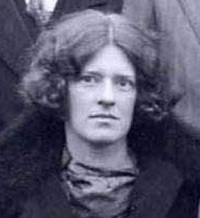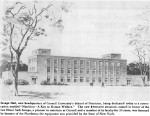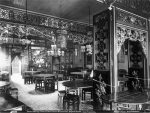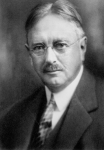![]()
Cicely Williams was a British colonial physician who, while serving in what is now Ghana, first described kwashiorkor, an ultimately fatal malnutrition affecting young children.
Kwashiokor in the local language meant “disease of the displaced child” and occurred in those between 6 months and 4 years of age who were no longer being fed properly because their mothers gave birth to another child or died.
Her first description, published in 1933, was met by skepticism by those who thought she was confusing the condition with pellagra (both conditions included dermatitis). She published a followup paper in The Lancet in 1935, calling the condition Kwashiokor for the first time and specifically contrasting it with pellagra.
The following year after a clash with her superiors over the role she should play in medical care, Williams was abruptly relieved of her clinical duties and transferred to a university teaching post in what is now Malaysia.
There she campaigned against the practice of multi-national companies like Nestle, who sent women dressed like nurses into poor neighborhoods to encourage mothers to feed their infants formula instead of breast milk. Williams was blunt and called it murder.
After the Japanese captured Singapore in 1941, Williams was held in a POW camp for three and a half years. At one point, she was kept in a tiny cell for 4 months with men who were taken out daily to be tortured.
Despite the dreadful conditions of the camp, Williams used her expertise to help newborn babies survive. “20 babies born, 20 babies breastfed, 20 babies survived. You can’t do better than that,” she later wrote with pride.
After the War, Williams was appointed the first director of Mother and Child Health at the new World Health Organization in Geneva.
References:
- Wikipedia biography
- obituary in The Independent (UK) newspaper
- Short biography from Jamaica where Williams was born
- review of biography of Williams with summary of her life
- Listening to the Ga: Cicely Williams’ Discovery of Kwashiorkor on the Gold Coast by J Stanton
- Breastfeeding Pioneer from La Leche League pages 10-11
- American Public Health Association tributeMother and Child Health – Common Sense, Creativity and Care. Selected works of Dr. Cicely D. Williams.



